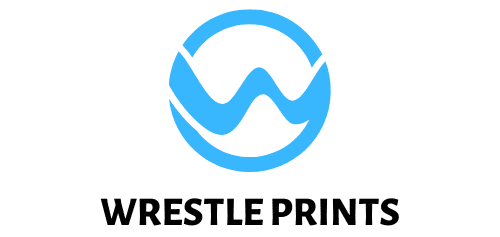What Are the Best Practices for Sustainable Water Management in UK Property Developments?

In the world of property development, sustainability has shifted from being a desirable attribute to an absolute necessity. This requirement extends beyond the construction phase and includes the crucial aspect of water management. Water is a vital natural resource, and its management is an essential part of building sustainably. With the mounting pressure of climate change, and the emergence of stringent environmental regulations, property developers in the UK are now tasked with the responsibility of incorporating sustainable water management systems into their plans. This article will delve into the best practices for sustainable water management in UK property developments.
Integrating Water Management into Property Development Planning
The first step towards sustainable water management in property development is ensuring that it is included in the planning phase. It is crucial to consider how your property development will interact with the local water resources. This includes understanding the regional water supply, managing stormwater, and considering wastewater treatment. As part of the planning stage, comprehensive environmental impact assessments are also necessary. These assessments provide valuable insights into how the property development plans might affect local water systems and helps to mitigate any potential impact.
Cela peut vous intéresser : What Are the Key Factors Influencing Commercial Office Space Demand in Post-Brexit UK?
The integration of water management into property development planning also includes considering the use of sustainable building materials. Materials that are water-efficient not only reduce the overall water footprint of the building but also contribute to energy efficiency, a win-win for environmental sustainability.
Employing Rainwater Harvesting Systems
Rainwater harvesting is one of the most effective methods for sustainable water management in property developments. These systems collect and store rainwater for later use, reducing the demand on the mains water supply. In the UK, where rainfall is abundant, this represents an untapped resource that could significantly contribute to water sustainability.
A découvrir également : What Is the Potential of Mixed-Reality Technology in Real Estate Showcases?
Rainwater harvesting systems have a dual benefit: they decrease the demand on municipal water supplies and reduce the amount of stormwater runoff, which can contribute to flooding. Incorporating these systems into property developments allows for a more sustainable approach to water management.
Incorporating Greywater Recycling Systems
Greywater is the wastewater generated from everyday activities such as washing dishes, laundry, and bathing. Although it may include traces of dirt, food, grease, hair, and certain household cleaning products, greywater does not contain the serious contaminants found in blackwater from toilets. Greywater recycling systems treat and repurpose this water for non-drinking purposes such as toilet flushing, irrigation, and even laundry.
Utilising greywater recycling systems will significantly reduce the demand for fresh water, and subsequently the energy required to treat and distribute it. Also, by preventing greywater from entering the sewer system, these systems can reduce the load on local wastewater treatment facilities and minimise the risk of sewer overflows during heavy rainfall events.
Enhancing Water Efficiency in Buildings
Water efficiency is a fundamental aspect of sustainable water management in property development. This can be achieved by installing water-efficient fixtures and appliances, such as low-flow showerheads and dual-flush toilets. Also, employing smart water metering systems can help monitor water usage and identify leaks early, preventing wastage.
Water-efficient landscaping is also a crucial factor in enhancing water efficiency in property developments. This involves the use of native or drought-resistant plants, which require less watering, and the use of mulch to reduce evaporation.
Promoting Education and Awareness
Lastly, the success of sustainable water management in property developments largely depends on the occupants. Education and awareness campaigns can help users understand the importance of water conservation and the role they play in achieving it. This includes understanding how to use water-efficient appliances and systems correctly, and the benefits of practices such as shorter showers and full loads of laundry.
Remember, sustainable water management is not just about the systems and technologies we implement—it also involves a cultural shift in the way we view and use this vital resource. Ultimately, every drop counts when it comes to building a sustainable future.
Adopting a Long-term View in Water Management
An essential aspect of sustainable water management in property development is taking a long-term view. This involves considering not just the immediate needs of the property, but also how it will interact with water resources in the years and decades to come. Factors like climate change, population growth, and changing regulations can all have significant impacts on water availability and quality.
Developing a long-term water management strategy requires a thorough understanding of the property’s current water use, as well as projections of future use. This includes considering both the demand and supply sides of the equation. On the demand side, this involves forecasting future water needs based on factors like expected occupancy rates, the types of activities that will be taking place on the property, and potential changes in water use habits. On the supply side, it involves considering the availability of water resources under various future scenarios, including potential changes in rainfall patterns due to climate change.
A long-term view also involves considering the potential risks associated with water scarcity and quality, such as increased costs, regulatory penalties, and reputational damage. By incorporating these considerations into their planning, property developers can create more resilient and sustainable developments that are better equipped to handle the uncertainties of the future.
The Role of Technology in Sustainable Water Management
The use of technology can significantly enhance the effectiveness of sustainable water management in property developments. From smart water meters that provide real-time data on water use, to advanced treatment systems that allow for the safe and efficient reuse of water, technology is playing a crucial role in helping property developers manage water resources more sustainably.
Smart water meters enable property owners to monitor water use in real-time, helping to identify leaks or unusual usage patterns early, preventing wastage. They can also provide valuable data that can be used to educate occupants about their water use habits, encouraging more efficient use.
Advanced water treatment systems, on the other hand, can help property developers make more efficient use of water resources. For instance, technologies like membrane filtration and ultraviolet disinfection can treat greywater and rainwater to a standard that is safe for uses like toilet flushing and irrigation. These technologies can significantly reduce the demand for potable water, contributing to long-term water sustainability.
In addition, technologies like remote sensing and predictive modelling can help property developers better understand and manage their water resources. For instance, remote sensing can provide valuable data on factors like groundwater levels and surface water quality, while predictive modelling can help forecast future water availability and demand.
In conclusion, the importance of sustainable water management in property development cannot be understated. From integrating water management into property development planning, employing rainwater harvesting systems, incorporating greywater recycling systems, enhancing water efficiency in buildings, promoting education and awareness, adopting a long-term view in water management to the role of technology, various practices can be implemented to ensure the sustainability of water resources.
The challenges posed by climate change and the growing demand for water necessitate a shift in how we view and manage this vital resource. However, with the right strategies and technologies in place, property developers in the UK can play a significant role in promoting sustainable water management.
Through these practices, we can not only help preserve our precious water resources but also create more sustainable and resilient property developments that can thrive in the face of future challenges. This way, we can ensure that our water resources are managed sustainably for the benefit of current and future generations. Thus, every property development project presents an opportunity to contribute to a more sustainable future, and every drop indeed counts.
